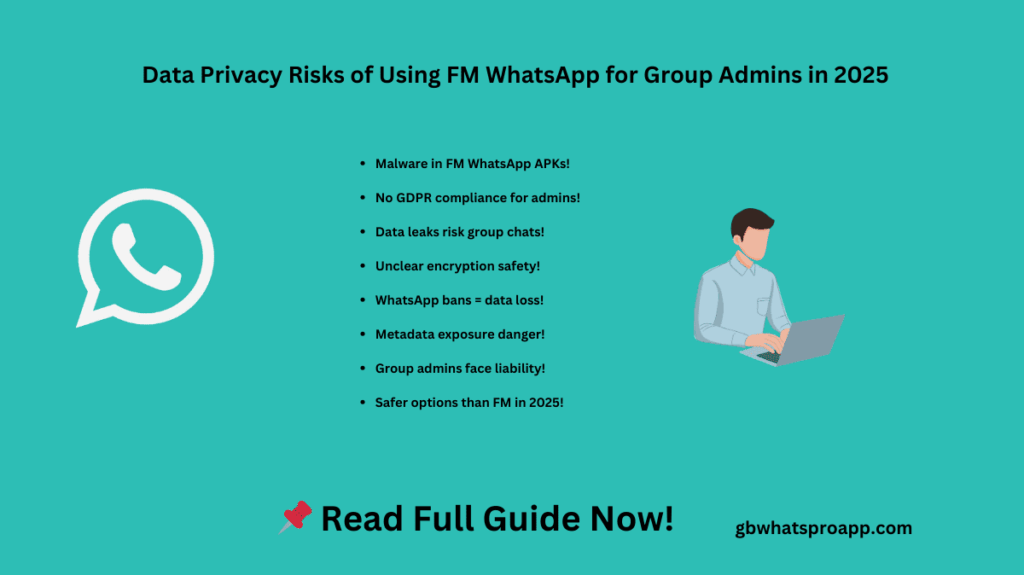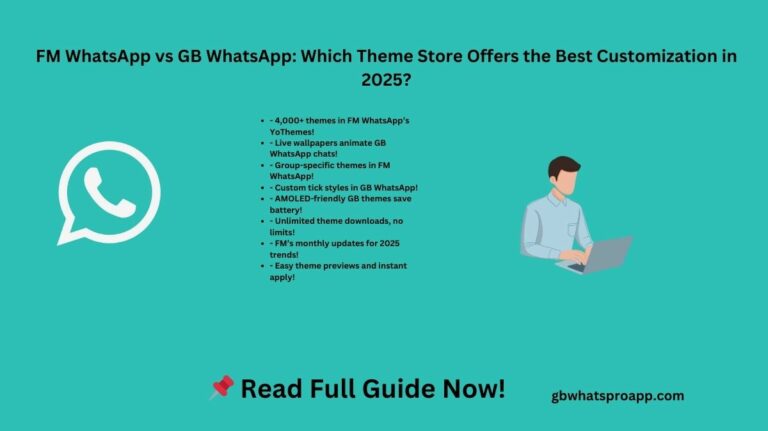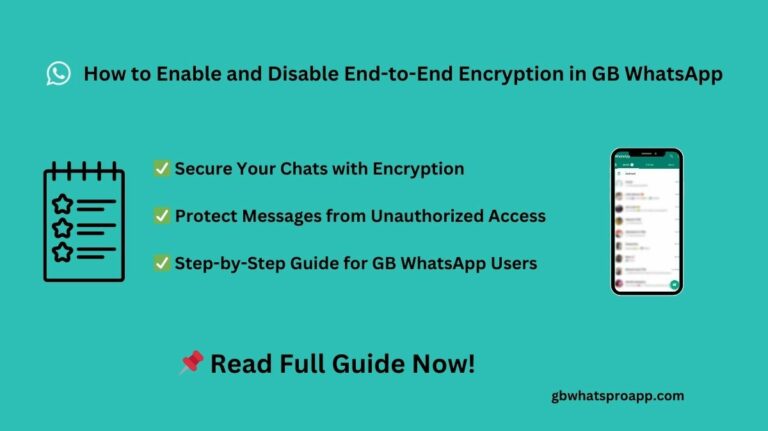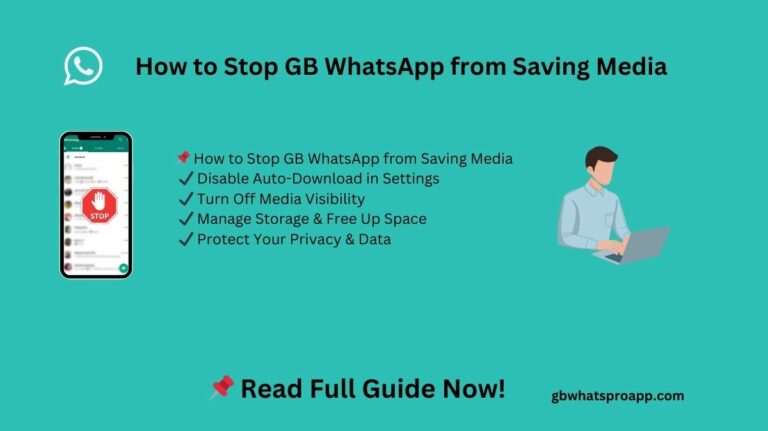Data Privacy Risks of Using FM WhatsApp for Group Admins in 2025
As of April 2025, FM WhatsApp remains a popular choice for those seeking enhanced features over the official WhatsApp app. Group admins, in particular, might be drawn to its advanced customization and privacy settings, such as hiding blue ticks or scheduling messages. However, using FM WhatsApp introduces significant data privacy risks, especially for group admins who manage sensitive group interactions. This blog explores these risks in detail, offering insights into why group admins should approach FM WhatsApp with caution and how to mitigate potential issues, all while aligning with SEO best practices for better visibility.
What Is FM WhatsApp and Why Do Group Admins Use It?
FM WhatsApp is a modified version of WhatsApp that offers additional features not available in the official app. For group admins, the appeal lies in functionalities like advanced privacy controls, the ability to send larger files, and protection against bans for using third-party mods. For example, admins can customize privacy settings for specific group members, such as hiding typing status or restricting profile picture access. These features can make managing a group more flexible, especially for communities sharing high-quality media or needing tailored privacy options. However, these benefits come at a steep cost when it comes to data privacy and security.

Key Data Privacy Risks for Group Admins Using FM WhatsApp
1. Lack of Official Oversight and Malware Risks
FM WhatsApp is not available on official app stores like Google Play or the App Store. Instead, it must be downloaded from third-party websites, which lack the rigorous security checks of official platforms. This exposes group admins to significant risks of downloading malware or spyware embedded in the APK file. Malware can access sensitive group data, including messages, media, and member details like phone numbers. For group admins, this is particularly concerning because they are often responsible for managing and protecting group content, which may include sensitive information shared by members.
2. Unclear Data Collection and Sharing Practices
Unlike the official WhatsApp, which operates under a transparent privacy policy (though not without its own controversies), FM WhatsApp’s data handling practices are opaque. As a third-party app, it’s unclear how FM WhatsApp collects, stores, or shares user data. Group admins may unknowingly expose group members’ personal information, such as phone numbers, profile details, and metadata, to unauthorized entities. Since FM WhatsApp isn’t subject to the same regulatory scrutiny as WhatsApp, there’s no guarantee that this data isn’t being shared with third parties for advertising or other purposes, putting group admins at risk of violating privacy laws like GDPR.
3. GDPR Compliance Issues for Group Admins
Under the General Data Protection Regulation (GDPR), group admins using WhatsApp for community or business purposes may be considered “data controllers” if they manage personal data, such as members’ phone numbers or shared content. FM WhatsApp, however, does not comply with GDPR requirements. For instance, it lacks mechanisms to obtain explicit consent before adding users to groups, and there’s no clear way to delete data or respond to Subject Access Requests (SARs). If a group member’s data is mishandled, the admin could face legal liability, especially in regions like the EU where GDPR fines can be substantial.
4. Vulnerability to Data Breaches
While FM WhatsApp claims to use end-to-end encryption, its unofficial nature raises doubts about the integrity of this security. The app’s developers could introduce backdoors or vulnerabilities, either intentionally or due to poor coding practices. For group admins, this means that group chats, which often contain sensitive discussions or media, could be intercepted by hackers. Past WhatsApp vulnerabilities, like the 2019 Pegasus spyware attack, show that even official apps can be exploited FM WhatsApp, with its lack of oversight, is likely far more vulnerable, putting admins at risk of being held accountable for breaches.
5. Risk of Account Bans and Data Loss
WhatsApp actively bans accounts using third-party mods like FM WhatsApp for violating its terms of service. For group admins, a ban can result in the loss of access to group data, including member lists and chat history, with no way to recover it. This can be particularly damaging if the group is used for business or community purposes where data retention is critical. Additionally, WhatsApp’s terms prohibit the use of mods, meaning admins have no legal recourse if their account is suspended, leaving them unable to protect or manage group data effectively.
6. Inability to Moderate Content Effectively
FM WhatsApp does not provide robust tools for group admins to moderate content. While it offers features like anti-ban protection, it lacks the ability to systematically validate group members or delete inappropriate content after a certain period. This can lead to the spread of misleading or harmful information within the group, such as misinformation, abusive comments, or inappropriate media. Group admins may face reputational or legal consequences if they cannot address these issues, especially in groups with large or diverse memberships.
7. Exposure of Metadata and Group Member Information
Even with end-to-end encryption, metadata such as who is in the group, when messages are sent, and group names is often not encrypted. FM WhatsApp’s unclear privacy practices mean this metadata could be collected and shared with third parties. For group admins, this poses a risk of exposing members’ identities and communication patterns, which could be exploited for targeted scams or surveillance. In professional or community groups, this lack of metadata protection can erode trust among members, holding admins accountable for any misuse of this data.
Why These Risks Are Amplified for Group Admins
Group admins bear a unique responsibility as they oversee the group’s activities and manage its members. In the context of FM WhatsApp, this responsibility amplifies the risks because admins are often the ones who add members, share content, and set privacy settings. If a data breach occurs, admins may be held liable, especially in regions with strict data protection laws. Moreover, the lack of transparency in FM WhatsApp’s operations means admins cannot assure members that their data is secure, potentially damaging the group’s trust and reputation.
How Group Admins Can Mitigate These Risks
While the safest option is to avoid FM WhatsApp altogether, some group admins may still choose to use it for its features. Here are practical steps to minimize data privacy risks:
- Verify the Source Before Downloading: Only download FM WhatsApp from a trusted third-party site, though this still carries risks. Check user reviews and ensure the APK file is not flagged for malware.
- Limit Sensitive Data Sharing: Avoid sharing sensitive information, such as personal details or financial data, in FM WhatsApp groups. Encourage members to do the same.
- Adjust Privacy Settings: Use FM WhatsApp’s advanced privacy features to restrict who can see group details, such as profile pictures and statuses. Set group invitations to “My Contacts” to prevent unauthorized additions.
- Educate Group Members: Inform members about the risks of using FM WhatsApp and encourage them to avoid sharing sensitive content. Transparency can help manage expectations and reduce liability.
- Use Official WhatsApp for Critical Groups: For business or community groups where data privacy is paramount, stick to the official WhatsApp app, which offers better compliance with privacy regulations.
- Regularly Monitor Group Activity: Keep an eye on group interactions to quickly address any inappropriate or risky content. This can help prevent escalation of issues that could lead to legal or reputational harm.
- Consider Alternatives: Explore privacy-focused alternatives like Signal, which prioritizes data protection and offers similar group functionalities without the risks of third-party mods.
The Bigger Picture: Is FM WhatsApp Worth the Risk?
For group admins, the allure of FM WhatsApp’s features must be weighed against the significant data privacy risks. While it offers enhanced customization and media-sharing capabilities, the lack of oversight, potential for malware, and non-compliance with regulations like GDPR make it a risky choice. Group admins, who are often seen as stewards of group data, face heightened exposure to legal, reputational, and security challenges. In 2025, with data privacy laws becoming stricter globally, the stakes are higher than ever.
Conclusion: Prioritize Safety Over Features
FM WhatsApp, GB WhatsApp, and OG WhatsApp may seem like powerful tools for group admins, but their data privacy risks significantly outweigh their benefits, as these apps carry vulnerabilities such as malware exposure and GDPR non-compliance, posing serious threats that can compromise both the admin’s and group members’ data, so instead of relying on unofficial mods like FM WhatsApp, GB WhatsApp, or YO WhatsApp, group admins should choose the official WhatsApp app or switch to secure alternatives like Signal, ensuring that by prioritizing data privacy, admins can protect their groups, maintain member trust, and provide a safer, more reliable communication experience in 2025.
Call to Action: Have you experienced data privacy issues with FM WhatsApp as a group admin? Share your thoughts in the comments below, and let’s discuss safer alternatives for managing your groups.






Your article helped me a lot, is there any more related content? Thanks! https://accounts.binance.com/uk-UA/register-person?ref=XZNNWTW7
Your point of view caught my eye and was very interesting. Thanks. I have a question for you. https://accounts.binance.com/en-ZA/register?ref=B4EPR6J0